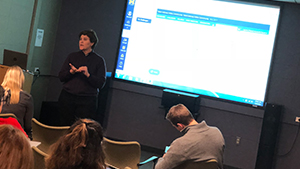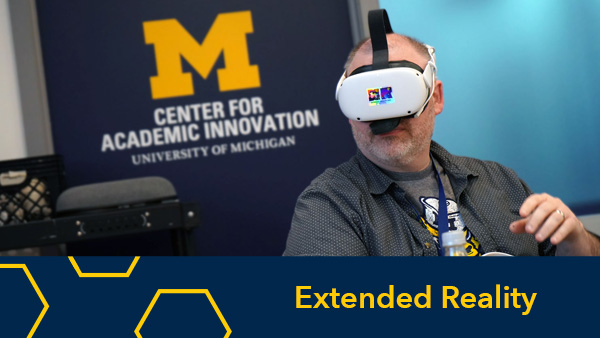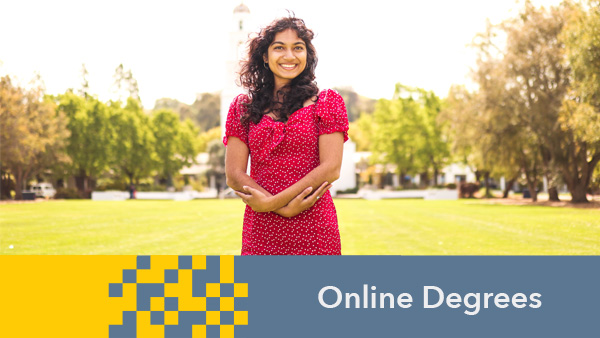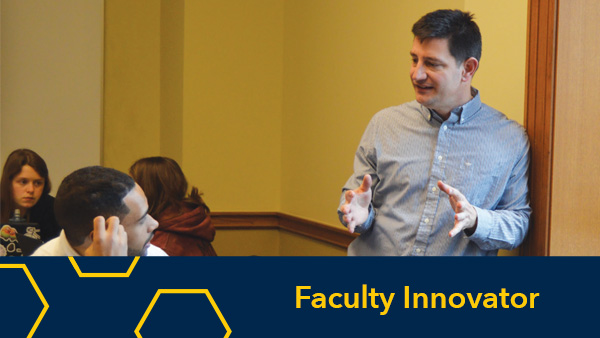Megan Taylor, Research Associate
@megsnt
Trevor Parnell, Events and Marketing Specialist
The Digital Tools and Youth Outreach community is a group of U-M faculty and staff who meet throughout the academic year to explore the relationships between digital technology, learning and engagement in K-12 environments and success in higher education. This community, formed through a partnership between the Office of Academic Innovation and the U-M Center for Educational Outreach, met recently to hear Rachel Niemer, Director of Strategic Initiatives speak on gameful pedagogy, as well as the gameful learning management tool, Gradecraft. Laurie Sutch, Executive Director of the Talent Gateway at U-M Dearborn was also on hand to discuss using Gradecraft in a non-course setting with the Talent Gateway.
The Digital Tools and Youth Outreach community was formed in November 2017, in an effort to spark conversations and collaborations between two increasingly interconnected communities on campus: the youth outreach community and educational technology community. This partnership between the Office of Academic Innovation and the Center for Educational Outreach is an opportunity to bring these communities together in a significant way. The Office of Academic Innovation offers expertise and experience in edtech and the use of digital tools to support teaching and learning, and the Center for Educational Outreach coordinates and supports all K-12 outreach programming. The purpose of the Digital Tools and Youth Outreach Community is to increase knowledge of existing digital tools, imagine new uses for digital tools and discuss how to incorporate these tools to complement K-12 outreach programming and strengthen and broaden our impacts. This community is a space for each of these groups to learn from each other, build connections and spark meaningful and unique collaborations.
Rachel Niemer opened up the conversation by posing a question to the group. “What does engagement mean for you?,” Neimer asked. “Gameful courses provide opportunities for students to make choices for how they are going to learn.” She noted that gameful learning creates a sense of belongingness for students, while also pointing out that competition in courses can be motivating for some students and demotivating for others. A short demonstration of the Gradecraft dashboard was presented, including a brief history since the tools’ inception.

Just over a year ago, Laurie Sutch helped launch the Talent Gateway, an initiative unique to UM-Dearborn that empowers students to be agents of change in their own lives by connecting them with resources, experiences, and people who can help to prepare them for a successful life ahead. Students can voluntarily participate in a variety of “challenges” to help them develop particular skills that would be valuable to a potential employer such as critical thinking and problem-solving, oral and written communication and digital literacy. Talent ambassadors, represented by all four U-M Dearborn colleges, provide feedback to participating students. “Students feel like they know the talent ambassadors and feel like they are a part of a community,” said Sutch. Students are offered incentives for completing challenges, such as an (M)Talent distinction on their official transcripts and recognition at graduation.
“We were excited to welcome Rachel and Laurie to share about gameful learning, Gradecraft, and the Talent Gateway. Their work is an inspiration and it intrigued many of our community members to learn about the unique ways that gameful pedagogy can shape programming. It was a robust learning opportunity and we look forward to further exploring how gameful pedagogy could be incorporated into our outreach practices,” said Megan Taylor, Research Associate for the Office of Academic Innovation, who helped form the community along with Adam Skoczylas, Program Manager for the U-M Center for Educational Outreach.
Reflecting on the meeting, Amy Homkes-Hayes, Lead Innovation Advocate for the Office of Academic Innovation, said, “What does it mean to support K-12 outreach using digital tools? How do we use digital edtech born in the classroom in diverse settings in meaningful ways? I am so happy we have a community grappling with these questions. The Digital Tools and Youth Outreach group provides for us a space to convene and discuss how to use digital edtech in creative ways to reach K-12 students, and promote a college-going culture.”
At its heart, the goal of this community is to use digital tools to strengthen and scale outreach practices so that they may be increasingly accessible and inclusive to have a broader impact. In pursuing a diverse, equitable and inclusive campus community, it is absolutely essential that our outreach practices and efforts too, are diverse, equitable and accessible to all students and communities. As attaining a college degree becomes increasingly critical in today’s economy, these conversations and questions grow in significance, and I am thankful to have this community of practitioners to grapple with them.
“The Office of Academic Innovation aims to broaden access to higher education by building new models for pre-college learning that are open, both in terms of easily accessible content for college preparation, but also that make pathways to higher education transparent to all populations. This community is a wonderful space to explore, with like-minded partners from across campus, how our existing tools can support ongoing efforts and be used to re-imagine how the University of Michigan supports pre-college learners,” said Niemer.
Throughout the next year, the community will continue to host learning opportunities. Next, they will begin to dig into the use of data in K-12 program evaluation to improve outcomes, and will explore the ethical use of data as it pertains to youth and their families.
The Digital Tools and Youth Outreach community meets regularly for an in-depth learning opportunity on a specific topic with guest speakers and facilitators. Additionally, they host informal pop-up small groups bringing together U-M faculty and staff for conversation on a specific question, idea or challenge that a member of our community is grappling with. If you are interested in being a part of this community, please contact Megan Taylor at [email protected].


